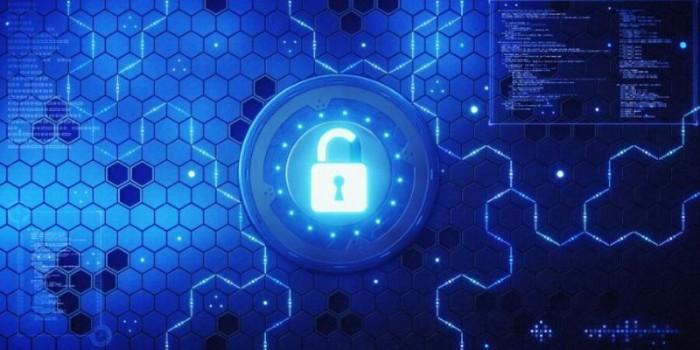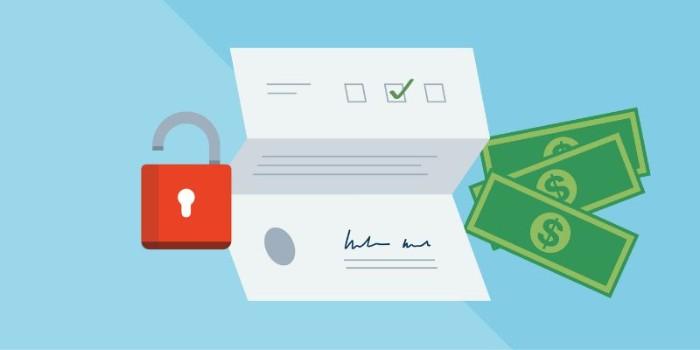What Is an Unsecured Loan?
Jul 31, 2023 By Kelly Walker
Are you considering taking out an unsecured loan but wondering what it is and whether or not it's the right option for you? We're here to help.
Unsecured loans can be a great solution when traditional options don't fit your needs.
Today we will explore what an unsecured loan is, how it differs from other types of lending when it might be right for you, and much more.
So, let's get started - if you're in the market for a loan, read on to learn why unsecured loans could make sense.
Unsecured Loan
An unsecured loan is a type of loan that does not require any form of collateral to secure the loan. This means borrowers are not required to pledge assets such as their car, home, or other property to receive the loan. Instead, lenders assess an applicant's financial situation and credit rating before deciding whether or not to grant a loan. Unsecured loans are available for various purposes and often come with higher interest rates than secured loans because the lender is taking on more risk. Unsecured loans can fund large purchases such as home improvements or vacations, consolidate debt, cover medical expenses, or provide extra cash flow during financial difficulty. However, it's important to remember that unsecured loans may come with higher interest rates and stricter repayment terms, so borrowers should always review them carefully before signing any agreement.
Unsecured loans are a great option for those who cannot or do not want to, pledge collateral. They can also help those with poor credit ratings because the lender is more focused on the borrower's financial situation than their credit score. Additionally, unsecured loans often have faster approval times and do not require the same paperwork as secured loans.
Reviewing all terms and conditions before signing any agreement is important when considering an unsecured loan. Be sure to consider the interest rate, repayment period, and any additional fees associated with the loan.
How an Unsecured Loan Works

An unsecured loan is one where the borrower is not required to put up any assets as security for the loan. This implies that you are not required to utilize any property as security for the amount of the loan. This form of loan is particularly appealing for people without access to collateral because the lender grants you a loan based on your creditworthiness and ability to repay it in full.
When you apply for an unsecured loan, the lender will assess your credit score and history, verifying that you have a good record of repaying borrowed money. Your income and liabilities are also considered to determine whether you can repay the loan and its associated fees.
Types of Unsecured Loans

Unsecured loans are typically divided into two categories, revolving and installment. Revolving loans, such as credit cards, allow borrowers to draw on a predetermined amount of available funds and make payments against that amount over time.
Installment loans, such as personal loans, involve borrowing a lump sum and making monthly payments in fixed amounts until the loan is paid off. Both unsecured loans are typically available from banks, credit unions, and other financial institutions.
Unsecured loans can be used for various purposes, including debt consolidation, home repairs, renovations, medical expenses, education costs, and more. It's important to note that while interest rates on unsecured loans are often lower than those on secured loans, they are still higher than rates associated with other forms of financing, such as mortgages and home equity lines of credit.
It's also important to consider the repayment terms when taking out an unsecured loan since lenders may require borrowers to pay back the entire amount quickly. Additionally, some lenders may require collateral to be put up as security for the loan, increasing the risk of default.
If you're considering taking out an unsecured loan, it's important to shop around and compare rates from different lenders to ensure you're getting the best deal. Additionally, read all the fine print in any loan agreement and carefully weigh the risks and rewards of taking out the loan.
FAQs
What is meant by an unsecured loan?
An unsecured loan is a type of loan that does not require collateral (such as property or other assets) to secure the loan. Instead, it is granted by lenders based on the borrower's creditworthiness and ability to pay back the loan. Unsecured loans may be used for various purposes, such as consolidating debt, making an emergency purchase, or financing a home improvement project.
What is an unsecured loan example?
Unsecured loans are typically offered as personal loans, credit cards, and student loan debt. Personal loans may be used for various purposes, including medical expenses, home repairs, or existing debt consolidation. Credit cards can also offer access to unsecured lines of credit to be used at your discretion. Student loan debt is an example of an unsecured loan that is used to pay for educational-related costs.
What is bad about an unsecured loan?
Unsecured loans can be more difficult to obtain due to the lack of collateral. Many lenders will require a higher credit score for an unsecured loan and may charge higher interest rates. If the borrower defaults on the loan, the lender cannot seize an asset as collateral. This can make unsecured loans more expensive and risky than secured loans. For these reasons, borrowers must consider all their options before taking out an unsecured loan.
Conclusion
When it comes to financing, consumers have plenty of options. An unsecured loan is one potential consideration that can provide a simple and affordable way to finance large purchases or manage debt. Learning how unsecured loans work, what types of loans are available, and other special considerations can help individuals choose the best solution for their needs.
Whether you want to consolidate debt, finance a large purchase, or cover an unexpected expense, understanding an unsecured loan can help you make the most informed decision possible. For more information on navigating your financial decisions, please visit our website for helpful tips and insights about unsecured loans. What Is an Unsecured Loan? Evaluate your unique needs so you can be confident in your decision to improve your future.








